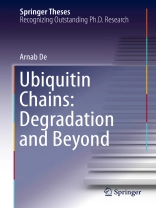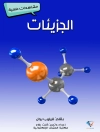This thesis examines the evidence for regulatory ubiquitination by focusing on A20. It provides an insightful and in-depth evaluation of the current literature by critically examining the evidence of K63-linked regulatory ubiquitination in regulating cell-signalling. It is also the first thesis to directly test the role of regulatory ubiquitination in NF-k B signaling
in vivo. The case for regulatory ubiquitination has been to a large extent predicated upon the presumed deubiquitinase activity of A20, long considered a key regulator of inflammatory responses as mice lacking A20 die from multi-organ inflammation and cachexia. The theses reports the creation and characterization of a knock-in mouse that expresses a mutated form of A20 which selectively lacks the deubiquitinase activity. The knock-in mice surprisingly display completely normal NF-κB activation with no accompanying inflammatory phenotype. Given that the presumed role of A20 as a deubiquitinase has been used to support the importance of regulatory K63-linked ubiquitination in NF-k B signaling, this study will help focus future research efforts into alternative target pathways that do not depend on K63 ubiquitination. In fact, the work suggests that it might be important to revisit the role of K63-linked polyubiquitination in cell-signalling.
Ubiquitin Chains: Degradation and Beyond is essential reading for anyone conducting research in cell-signalling and immunology.
Dr. Arnab De received his Ph D from the Department of Microbiology & Immunology at Columbia University. During his Ph D, he developed transgenic mice to study the mechanism of action of a critical tumor-suppressor called A20. He is also well known for having developed peptide-based prodrugs as therapeutics for diabetes. His work has been reported by the media, and has resulted in multiple patents and publications in peer reviewed journals. He presented his findings at the American Peptide Symposium and wasawarded the Young Investigator’s Award. He is the author of the book entitled
Application of Peptide-Based Prodrug Chemistry in Drug Development, with a foreword written by Professor Jean Martinez (Former President, European Peptide Society) and published in the series
Springer Briefs in Pharmaceutical Science & Drug Development. His research interests lie at the intersection of chemistry and medicine. Besides biomedical research, he is also generally interested in public health policy and general scientific outreach.
Cuprins
1 Immune homeostasis: Activation and Downregulation of NF-κB.- 2 Regulation of NF-κB signaling by regulatory ubiquitination: specific pathways and A20.- 3 The deubiquitinase activity of A20 is dispensable for its role in NF-κB signaling.- 4 Perspectives on regulatory ubiquitination.
Despre autor
Dr. Arnab De received his Ph D from the Department of Microbiology & Immunology at Columbia University. During his Ph D, he developed transgenic mice to study the mechanism of action of a critical tumor-suppressor called A20. He is also well known for having developed peptide-based prodrugs as therapeutics for diabetes. His work has been reported by the media, and has resulted in multiple patents and publications in peer reviewed journals. He presented his findings at the American Peptide Symposium and was awarded the Young Investigator’s Award. He is the author of
Application of Peptide-Based Prodrug Chemistry in Drug Development, with a foreword written by Professor Jean Martinez (Former President, European Peptide Society) and published in the series
Springer Briefs in Pharmaceutical Science & Drug Development. His research interests lie at the intersection of chemistry and medicine. Besides biomedical research, he is also generally interested in public health policy and general scientific outreach.












